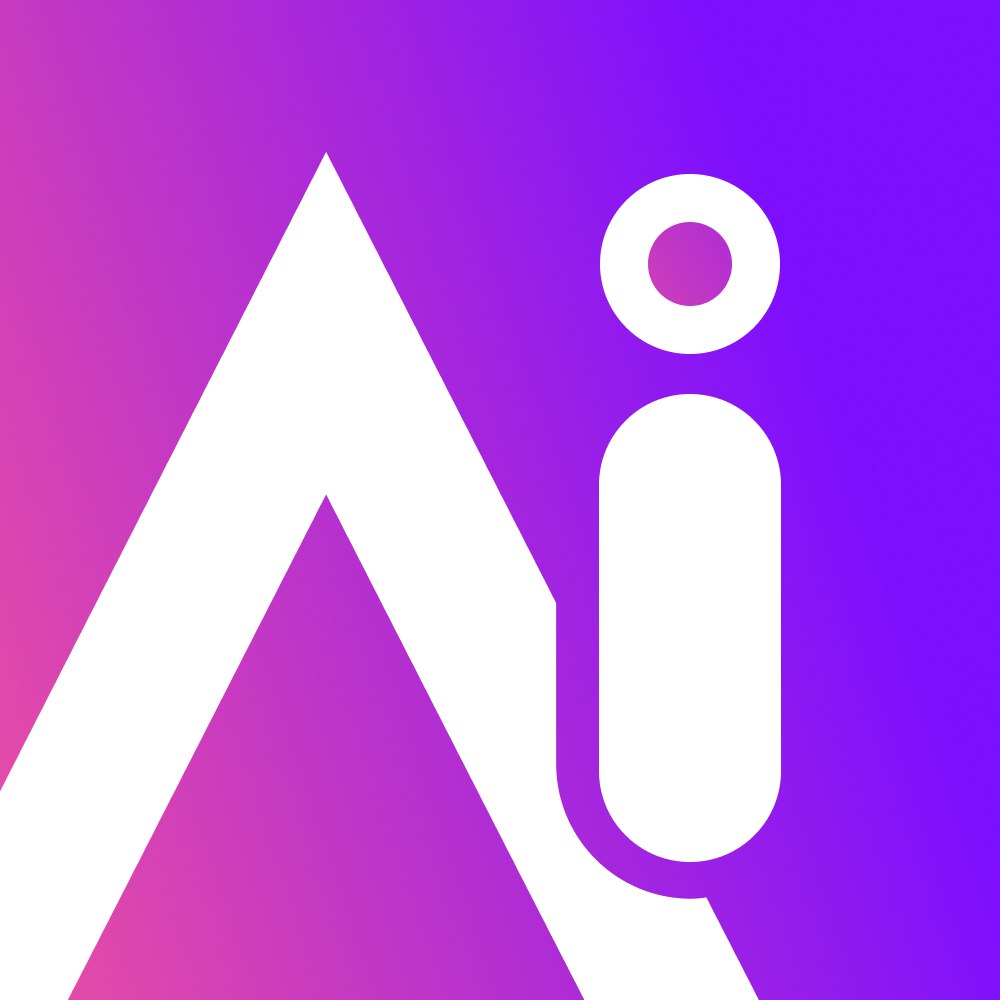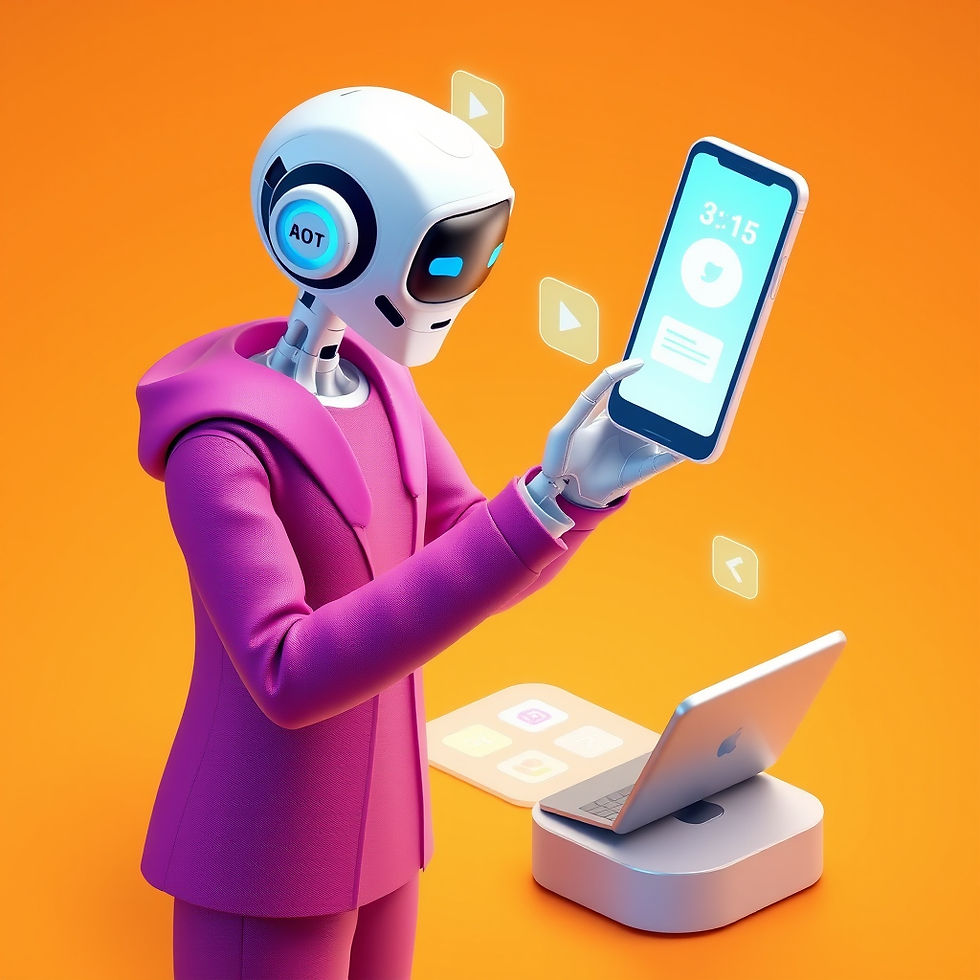The Rise of Agentic AI: How Smart AI Agents Are Transforming Business in 2025
- AI AppAgents Editorial Team

- Sep 27, 2025
- 4 min read
Updated: Oct 1, 2025

Introduction
In 2025, AI agents do not merely act as helpers that assist with simple tasks: they think, plan, and work independently. Leading companies are fueling agentic adoption, going beyond automation, and pinpointing key areas where agentic AI can make an impact. These are smart systems that can carry out tasks, make choices, and learn from their environment. Unlike traditional automation, which relies on set rules, AI agents are "agentic," meaning they can adjust, think for themselves, and take action to achieve their goals.
The Rise of AI in App Management
What Makes AI Agents Agentic?
The difference is that they learn, adapt, and work more like human beings. They are not doing what they are told to do; they also have goals, keep memories of previous activities, and can act based on what is going on around them in the environment.
Agentic AI systems have the ability to think, learn, and adapt, allowing them to work well in changing and complex situations.
The key features of agentic AI include:
Autonomy: AI agents can take action on their own without constant human oversight. They can do different tasks, change how things are done and make decisions upon the information they are having.
Goal-Oriented Behavior: Agents pursue clear outcomes, evaluating actions based on how well they advance those goals.
Adaptability: They can think through problems and choose the best next step.For instance, if there is a problem with the supply chain, the AI can adjust how supplies are bought, redirect shipments, or move inventory around to keep things running smoothly.
System Integration: AI agents can connect with multiple software systems at once. This lets them take information from different sources, manage difficult workflows and keep business processes the same.
How to Choose AI Agent Use Cases

Selecting the right AI agent use cases is important for getting real value from your business. It's not just about automating tasks, it's about finding areas where AI agents can make a measurable impact, work independently, and use the data you already have.
Four factors to consider:
Strategic Alignment: Pick use cases that directly support your organization's main goals, such as improving customer experience, lowering costs, or speeding up time-to-market.
Simple Reflex Agents: Perform based on a single set of rules. They do not hold memory or query other agents if they’re missing information.
Ease of Integration: Consider how easily AI agents can fit into your existing systems, tools, and processes.
Regulatory and Compliance: Some industries (finance, healthcare, law) need carefully managed AI agents due to strict rules.
AI Agent Applications by Role and Industry
1. Customer Service Automation
Example: H&M’s virtual shopping assistant offers personalized product suggestions, guides customers through checkout, and answers questions.
Business Impact: Cart abandonment decreased by 40%, conversion rates tripled, customer satisfaction improved.
Advanced Capabilities: Learn from past interactions, recognize behavior patterns, act proactively.
2. Sales and Lead Qualification
Example: Oracle’s AI agents update CRM systems, analyze behaviors, and generate multilingual reports.
Business Impact: Sales teams focus on high-value tasks, boosting conversions.
Advanced Capabilities: Rate leads, predict sales likelihood, suggest strategies.
3. Expense Monitoring Agents
Example: IBM’s AI agents adjust ad performance in real-time, modifying targeting for better engagement.
Business Impact: ROI increased, customer interaction improved, loyalty grew.
Advanced Capabilities: Tailored messaging, predictive analytics, optimized budgets.
4. Human Resources and Recruitment
Example: AI assistants screen resumes and schedule interviews.
Business Impact: Faster recruitment, better hires, reduced bias, less admin.
Advanced Capabilities: Insights for retention and onboarding strategies.
5. Liquidity Management Agents
Example: IBM Watson AIOps predicts failures and fixes them automatically.
Business Impact: Incident resolution time cut by 60%, false alarms dropped by 80%.
Advanced Capabilities: Detect and prevent problems, improve reliability.
6. Curriculum Alignment Agents
Example: Darktrace’s autonomous response system combats breaches instantly.
Business Impact: Breaches reduced by 92%, response faster, security stronger.
Advanced Capabilities: Adapt to new threats, spot attack patterns, improve defenses.
7. Financial Analysis and Reporting
Example: AI agents analyze transactions, spot discrepancies, and prepare compliance reports.
Business Impact: Reduced human error, faster reporting, deeper insights.
Advanced Capabilities: Run financial scenarios, guide investment and cost management.

Issues and Considerations
Data Quality: AI needs accurate, clean, and well-governed data.
Change Management: Employees may resist AI adoption; training and transparency are key.
Cost & ROI: Initial setup is expensive; organizations must track metrics to prove ROI.
Ethical & Security Risks: Data privacy, accountability, and fairness must be ensured.
What Agentic AI Means for the Human Workforce

Agentic AI is not about replacing jobs, but reshaping work.
Routine Automation: AI takes over repetitive tasks, freeing workers for strategic work.
Better Decision-Making: Real-time insights guide faster, smarter choices.
Upskilling: Employees learn AI management, ethics, and analytics.
Collaboration: Humans bring creativity; AI brings speed and scale. Together they create innovative, adaptable teams.
What's Next for AI Agents?
Greater Autonomy: More independent decision-making, even on strategy-level tasks.
Cross-Platform Integration: End-to-end workflows across CRM, ERP, and cloud systems.
Ethical Considerations: Strong governance needed to maintain trust.
Ongoing Innovation: Advances in natural language, computer vision, and predictive intelligence.
Conclusion
AI agents are transforming the workplace by augmenting human capabilities instead of replacing them.They streamline operations, improve decision-making, and enable employees to grow and innovate.
For businesses, adopting AI agents means more than automation — it means true transformation.Companies that adopt early will gain a strong advantage, building workplaces where human creativity and AI efficiency thrive together.
The journey of AI agents is just beginning, but the businesses that embrace them today will shape the future of innovation.

Ready to Bring Your Ideas to Life?
Whether you’re planning a new AI project, need app development, or want to explore automation for your business, AI AppAgents is here to help. Let’s collaborate to build solutions that drive real impact.
Get in touch:
📧 hello@aiappagents.com | 📞 +91 95501 00002
We look forward to hearing from you!


Comments